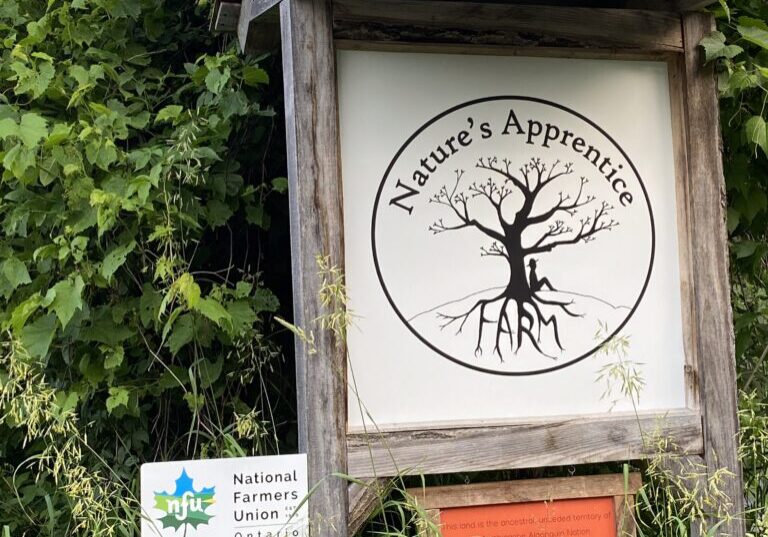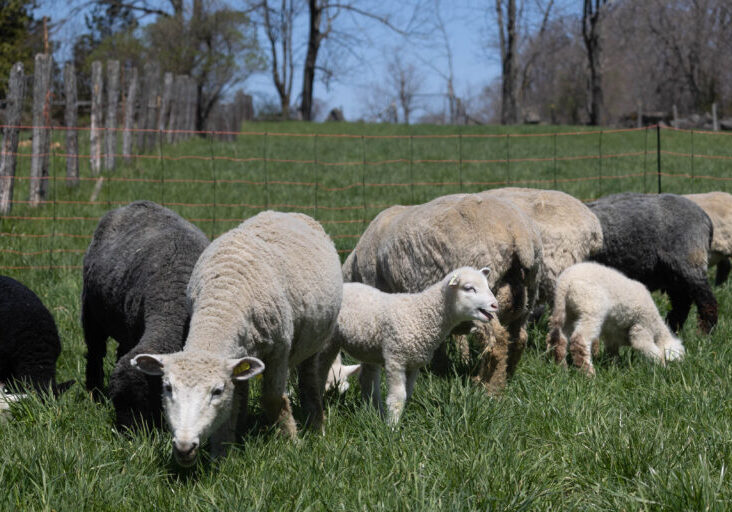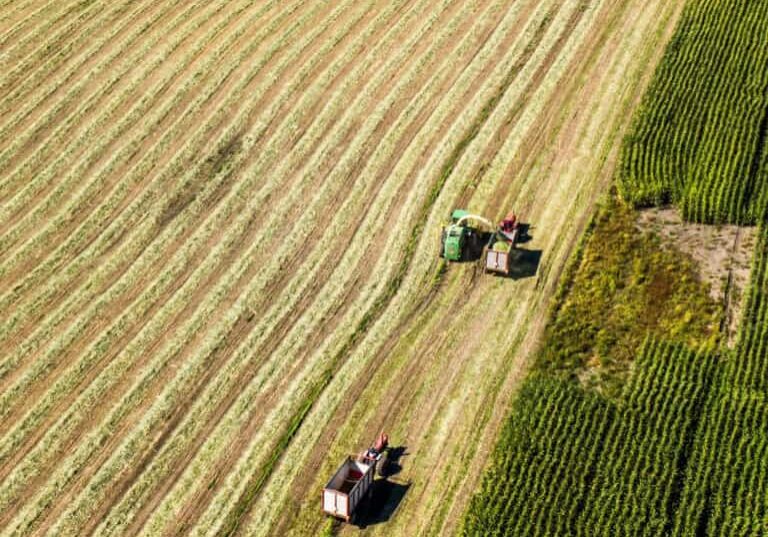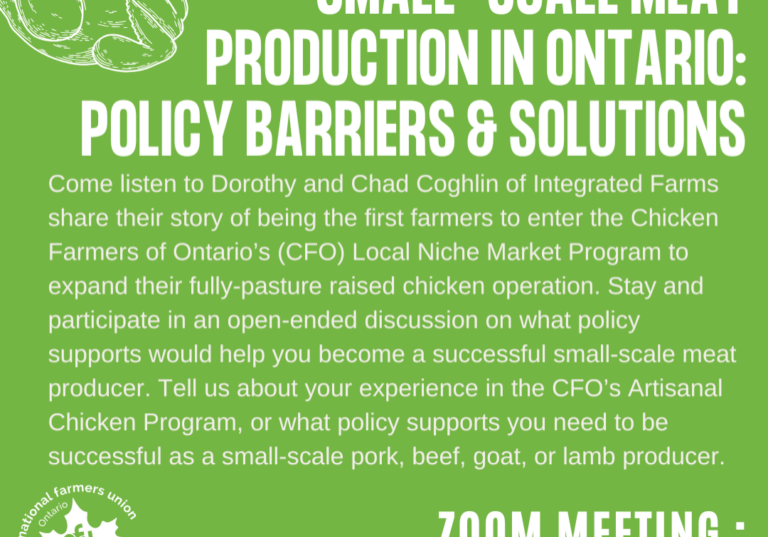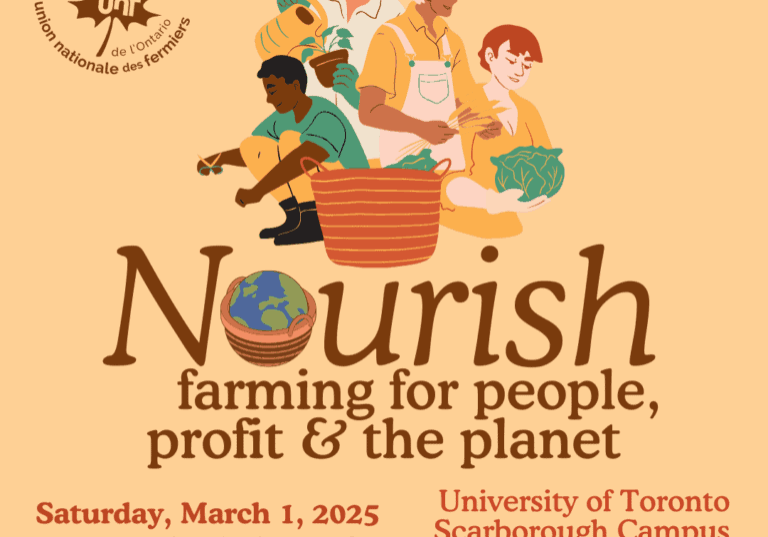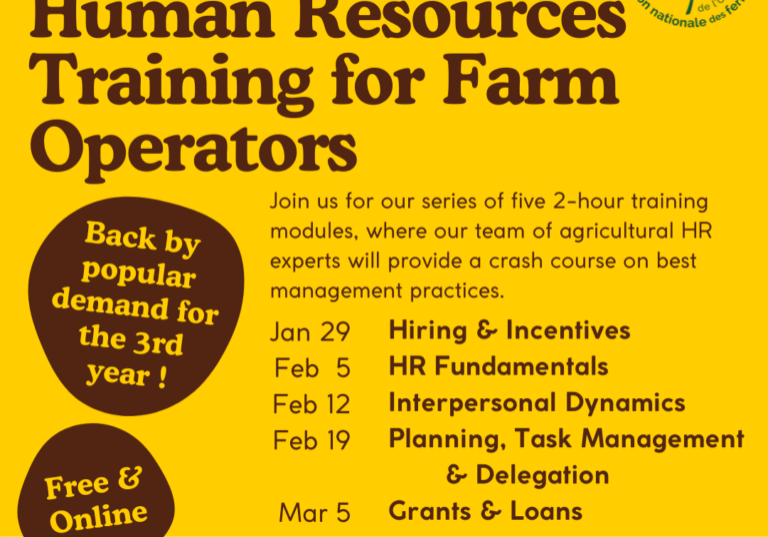Planting the Seeds for Future Generations: Natalie Legault of RD Legault Seeds
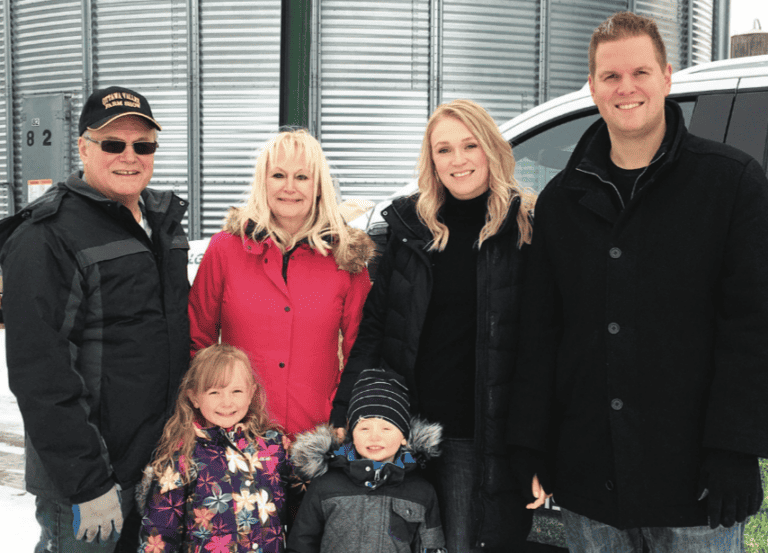
National Farmers Union – Ontario Newsletter
The Rural Voice | September 2021
Natalie Legault is planting seeds for future generations – metaphorically, and literally.
Natalie and her husband Raphael run RD Legault Seeds – a seed processing plant and soybean exporter.
The business was founded in the 1980s by Natalie’s parents, incorporated in 1997, and taken over by Natalie and Raphael in 2016 as the second generation of the company. It was one of Eastern Ontario’s Pioneer soybean seed processors and the very first micronization plant established in Eastern Ontario.
On site, you will only find non- GMO and organic soybeans. Corn and soybeans are micronized (a process of cooking the grain through infrared that penetrates the grain and helps with digestion, solubility and removes pathogens) for animal feed. Soybeans are dehulled on-site, splitting the soybean in half, which is then used primarily for human consumption.
Their main clients are local farmers who buy micronized corn and soybean for feed; seed growers who are given seed soybean contracts, where RD Legault Seeds commits to buying all of their crop when it comes to harvest; and manufacturers and/or distributor clients that make food grade soy products in several different countries.
RD Legault Seeds work exclusively with plant-based farmers and producers who use sustainable farming methods. They voluntarily test every incoming truck of soybeans for presence of glyphosate and strongly believe in avoiding GMO foods.
Currently, RD Legault Seeds is in the process of transitioning their land to organic. It’s a three year process to achieve the certification.
“You have to grow as if you were organic, but you’re not certified yet. So we have three years to really transition. It’s difficult because there are different methods and products that we’re used to, so we have to find a different way of cultivating. We are confident we’re going to get there.”
As an accredited seed processing plant, seed treatment plant and grain dealer, Natalie believes in acquiring accreditation and certifications as much as possible “because it brings knowledge, it brings structure, it brings different procedures and guidelines. All our certifications brought us something. I like constant learning, constant evolving.”
Natalie says it also offers satisfaction knowing they’re following guidelines and knowing the product is high-quality.
“You sleep better at night knowing this is protocol. It provides quality insurance.”
Certified seed is the “the product of a production process designed to deliver specific plant breeding achievements to farmers and the food industry; one that is rooted to identity preservation and quality assurance (as per CSGA (Canadian Seed Growers Association) statement). In other words, it is true-to-type. True-to-type means all the benefits developed by the plant breeder are retained as the seed is multiplied over a number of specific number of generations (to the certified seed stage) from the small amount of seed developed by the plant breeder.’’
Seed purity, germination and freedom from impurities are the three components that must be achieved to produce certified seeds. Seed varieties are multiplied on-site. In order to have certified seeds, breeder seeds come from a qualified breeder to ensure purity. A breeder grower can then multiply the variety. Once you have a select seed, a CSGA select grower can multiply it. Once multiplied, you have a foundation seed that a CSGA certified grower can multiply to get a registered seed. A CSGA certified grower can multiply registered seed in order to get a certified seed.
Agriculture has always been a passion of Natalie’s. Having been immersed in it most of her life, she says it’s “the true meaning of ‘life.’ It is my parents’ legacy and will be our legacy to our kids some day.”
It’s not always easy, and can bring unexpected challenges and many working hours, but that’s okay because that’s the job she chose, Natalie says.
Though, some recognition of the work that goes into farming from those outside of the industry is always appreciated. “What is important to mention and to not forget is that most farmers take good care of the environment, they make a difference for future generations and we don’t thank them enough!”
“We are part of the food supply chain. We can make a difference with different approaches and by doing so we help stimulate the economy (with export). We get to do something we are passionate about, and for that, I am grateful!”
Natalie’s family has been an NFU- O member for many years. “The first generation was part of it and we want to stay a part of it. The NFU-O gives a voice to farmers like us. It is important to get together and speak for what we believe in and what we need as a group.”
Click here to view the PDF version.
A subscription to The Rural Voice is one of the benefits of being an NFU-O member

